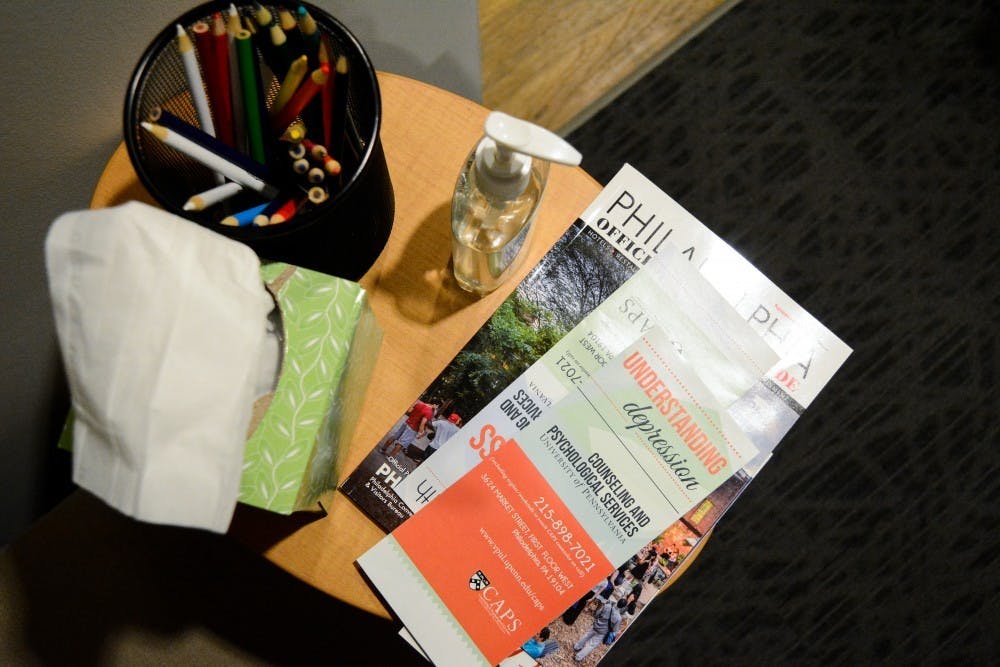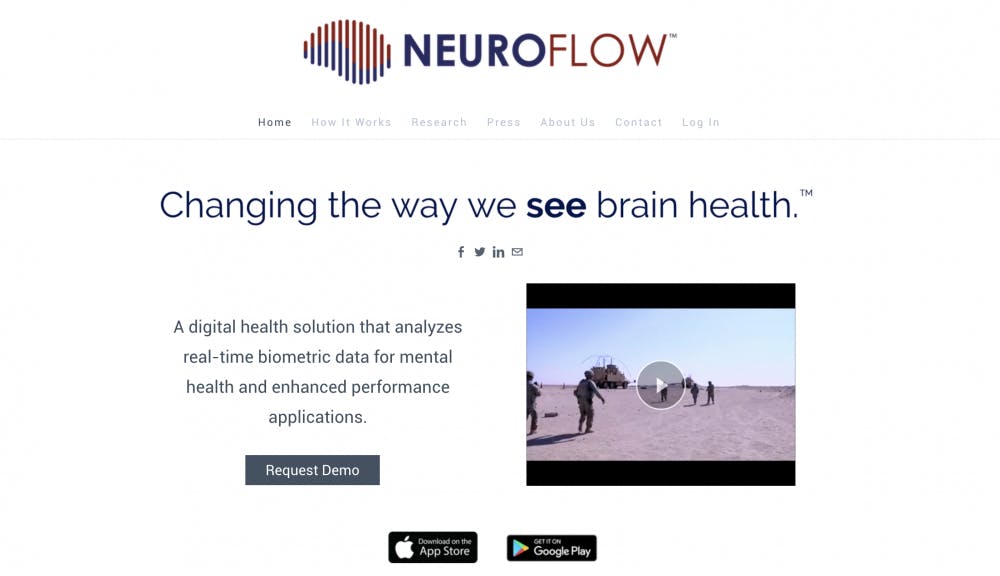
A startup co-founded by two Penn students is measuring brain activity to help doctors develop a better understanding of mental health.
Chris Molaro, a 2017 MBA graduate, co-founded NeuroFlow last year with Adam Pardes, a bioengineering Ph.D. candidate now on leave from Penn, because Molaro saw a need for improvement in mental health treatment after serving in the Army. The two bonded over a shared desire to improve technology designed to analyze mental health.
The company's data analytics platform uses wearable devices to measure stress markers in real time, said Ellen McGeoch, 2016 Master of Science graduate and director of strategic initiatives and partnerships at NeuroFlow.
The digital health platform is designed to assist clinicians in their decision-making processes by offering objective measurements of stress and other mental states. The tool was used in a study over the summer in the Wharton Behavioral Lab and is currently in use at the Children’s Hospital of Philadelphia and a number of private clinics in the Philadelphia area.
The company has received funding and other support from accelerator programs at Penn, including Wharton VIP and PennApps. They work in conjunction with researchers at the Wharton Neuroscience Initiative.

“Right now, we’re clinician facing,” McGeoch said. “People [are] using this under the care of their clinicians or with a therapist.”
The goal now is to push NeuroFlow out to more medical practices to test the product as much as possible.
“We need technology out there to assess and treat mental health, and it’s not something that’s been leveraged enough," Pardes said. "We wanted to change that and make a positive impact."
“It’s not about replacing clinicians or making a diagnosis in five minutes, but about really trying to understand how someone’s feeling quantitatively rather than by just relying on self-reporting.”
Of eight full-time employees at NeuroFlow, seven are Penn students and graduates. Most of them come from backgrounds in software engineering, bioengineering, and business.
Moving forward, the company hopes to be a more active participant in campus-wide discussions about mental health.
“We support the [Penn] community and are willing to help out in any way we can to spread awareness and reduce the stigma of seeking help for issues related to mental health,” McGeoch said.
The company staged a demonstration for students at the College of Liberal and Professional Studies on Wednesday as a part of the school’s Wellness Week initiative and plans to continue to participate in the wider conversation surrounding mental health on campus.
The Daily Pennsylvanian is an independent, student-run newspaper. Please consider making a donation to support the coverage that shapes the University. Your generosity ensures a future of strong journalism at Penn.
Donate




